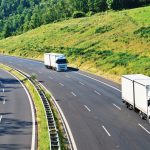Today, water … tomorrow, oil?

Cape Town’s water crisis and the cost of oil have more in common than you’d expect…
Up to now, many people (including myself) have been wasting water every day, complacently thinking that “it won’t happen to me”. Whether the dire predictions around “day zero” will come to pass, remain to be seen.
Obviously, there are solutions to the problem, but, due to the lack of planning, these will come at higher cost and with more inconvenience than if we had started to plan well in advance. These comments also apply to the hoary old topic of peak oil.
Just as Capetonians, irrespective of social status, are learning to stand in the same queue as they shuffle up to the taps clutching their jerry cans, so, too, will more South Africans need to find out about the local bus timetable, or familiarise themselves with the protocols at the local minibus-taxi rank. Who knows, even Elon Musk might meet some interesting people there.
It might not happen next year, or the year after that, but the prospect is real – especially in a country like South Africa, which has one of the highest rates of energy use in relation to gross domestic product in the world; largely due to our dependence on private motoring.
This has at least two bad consequences – energy costs money and our voracious appetite for imported oil is a drain on our balance of payments, and more cars on the road clog up our cities, to the detriment of both rich and poor.
Sadly, we continue to read of new refineries, bigger pipelines and new motor production plants to turn out the latest model German Sherman or Japanese juggernaut. We urgently need to start planning for the longer term (read: public transport).
It isn’t enough to talk of hybrid cars, or new apps that offer ride-sharing schemes, neither of which will do much to save road space. We need to tap into the new type of thinking among some of the younger generation, who are not besotted with cars but are willing to consider going without a car altogether. (Please don’t tell me that it will work only in Manhattan, or Hong Kong.)
The Eskom saga has shown that investors want stable electricity prices to allow for better investment planning. Why then do we allow the oil price to jump around every month? The government should tax imported oil to build up a “war chest” to fund the fairly modest amounts needed to start fixing public transport.
A watered-down form of Go!George would be ideal for all low-density areas, while busier routes can be worked by hybrid-electric buses. We also need to start paving around some railway tracks to allow electric buses to use the electric infrastructure, and start trying harder to put an end to the ongoing arson attacks on railway property.
Transport engineer Terry Markman points out (Business Day Feb 1) that “winding down SAA will save about R25 billion over the next five years – an amount that could fund 50 000 houses”. We could build even more houses if we imported 20-percent less fuel.
Sadly, none of this will happen while public transport operations and policy is in the hands of hundreds of underperforming time-servers, who currently warm the seats in boardrooms, council chambers, government departments, consultancy firms and universities.
When I read of the Cape Town city council now scrambling to put up bullet-proof walls along railway lines and using drones to monitor criminal activity on the railway, I’m tempted to say: “I told you so.”
Published by
Vaughan Mostert
focusmagsa




